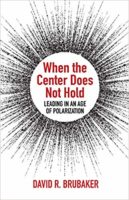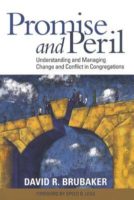
Think about some of the major decisions you’ve made in your life—whom to marry … or not; whether to have children … or not; where to attend university … or not; what congregation to attend … or not; what profession to pursue; and where to retire. From the day we can think independently until the day we stop doing so we constantly make choices and decisions. “Life is the sum of all your choices,” said the French philosopher Albert Camus.
Now think about how you made those major decisions. Did you gather information before deciding? Did you consult with certain trusted individuals? Did you pray about it? Whether as an individual, a family, or a congregation, how we go about making decisions will largely determine the quality of those decisions. Process matters as much as outcome primarily because the process that we use tends to shape the outcome.
So how do we go about making decisions, especially when we’re part of a larger group (like a congregation) and we have to consider multiple viewpoints? Here are three classic options:
- One person decides, perhaps after consultation with others. This need not imply a dictatorship. Rather, it means that one person has the authority to make the decision and is exercising that authority.
- A small group decides on behalf of the larger group. In a congregation this group is often called the board, council, session or vestry. This group is ideally representative of the larger group and will hopefully listen to and consult with others in the congregation. Regardless they have the authority to make many decisions on behalf of the whole.
- All members are involved in the decision-making process, usually by voting. We tend to see this as the purest form of democracy, and in congregational governance it means that all members have the right to vote on certain decisions.
Of course, in a given congregation we may see all three levels of decision making operating simultaneously depending on the issue being decided. Each week the pastor, priest or rabbi decides what subject to address in his or her homily or sermon, often in consultation with a Worship Committee. Each month the congregation’s governing board will meet and make decisions on behalf of the congregation. And each year the entire congregation convenes and votes on things like a congregational budget. It is appropriate to have multiple levels of decision-making for any group larger than about a dozen people. If we assume that “everyone has to be involved in everything” we eventually bog down and the system ceases to function.
But whether one person decides, a small group decides, or everyone decides, we still have to consider the process we will use to get to that decision point. How much information do we need and how will we gather that information? Once we have sufficient information, how will we make sense of it? How do we determine, among the many voices we are hearing, what God’s voice is telling us to do? These are questions of discernment, which can be defined as “keen perception or judgment.” How do we exercise good judgment in the process of decision making, whether as individuals or as groups?
I typed the word “discernment” into Google and received nearly nine million responses. Even using the narrower phrase “congregational discernment” yielded 3,860 responses. But I particularly like the definition of “congregational discernment” offered by the www.patheos.com site: “a spiritual practice that brings people together in prayer and deep reflection to listen to how God’s Spirit is leading the church.” Genuine group discernment among people of faith, then, requires that we do two things:
- That we bring people together
- That we engage in a process of prayer, “deep reflection” and listening
Too often we shortcut this process by not coming together, by refusing to engage in prayer and reflection or by failing to listen. But when we practice these disciplines—prayer, reflection (which is often done through story-telling) and listening—we offer the possibility that the divine will enable us to discern together what is good and right. Can we gather together, pray together, share stories together, and listen together? If so, we can become known as people who are discerning together—and doing so with gentleness and respect.
I have been privileged to be invited into numerous congregations and other faith-based organizations to lead discernment processes about important matters—whether to build, how to effectively serve the community, how to create a better governing structure, how to adapt to a changing environment, and how to resolve differences among key individuals and groups. I always work with a team of diverse individuals from that congregation or organization to develop a discernment process and listen broadly before making any recommendations. We also include time in our team meetings to listen to the divine (through devotions, prayer, or silence) as well as each other.
There are many decisions that need to be made in the life of a community of people that we call a “congregation.” Many can be made by individuals or by small groups; some need to be made by the congregation as a whole. But when the decisions are major and affect all of us, we need to bring people together in prayer and reflection and commit to listen to each other and the divine. When we do, we will find that God is speaking—normally in a quiet voice and often through the gathered wisdom of the group. When we listen, we find our way forward. When we fail to listen, we fall backwards. Teach us, Divine One, to listen, so that we may hear your voice as well as the voices of our sisters and brothers…
David Brubaker has consulted with organizations and congregations in the U.S. and a dozen other countries on organizational development and conflict transformation. He is the author of Promise and Peril, on managing change and conflict in congregations, and When the Center Does Not Hold, on leading in an age of polarization. David recently retired from his role as Dean of the School of Social Sciences and Professions at Eastern Mennonite University, and is now a Professor Emeritus of Organizational Studies.


